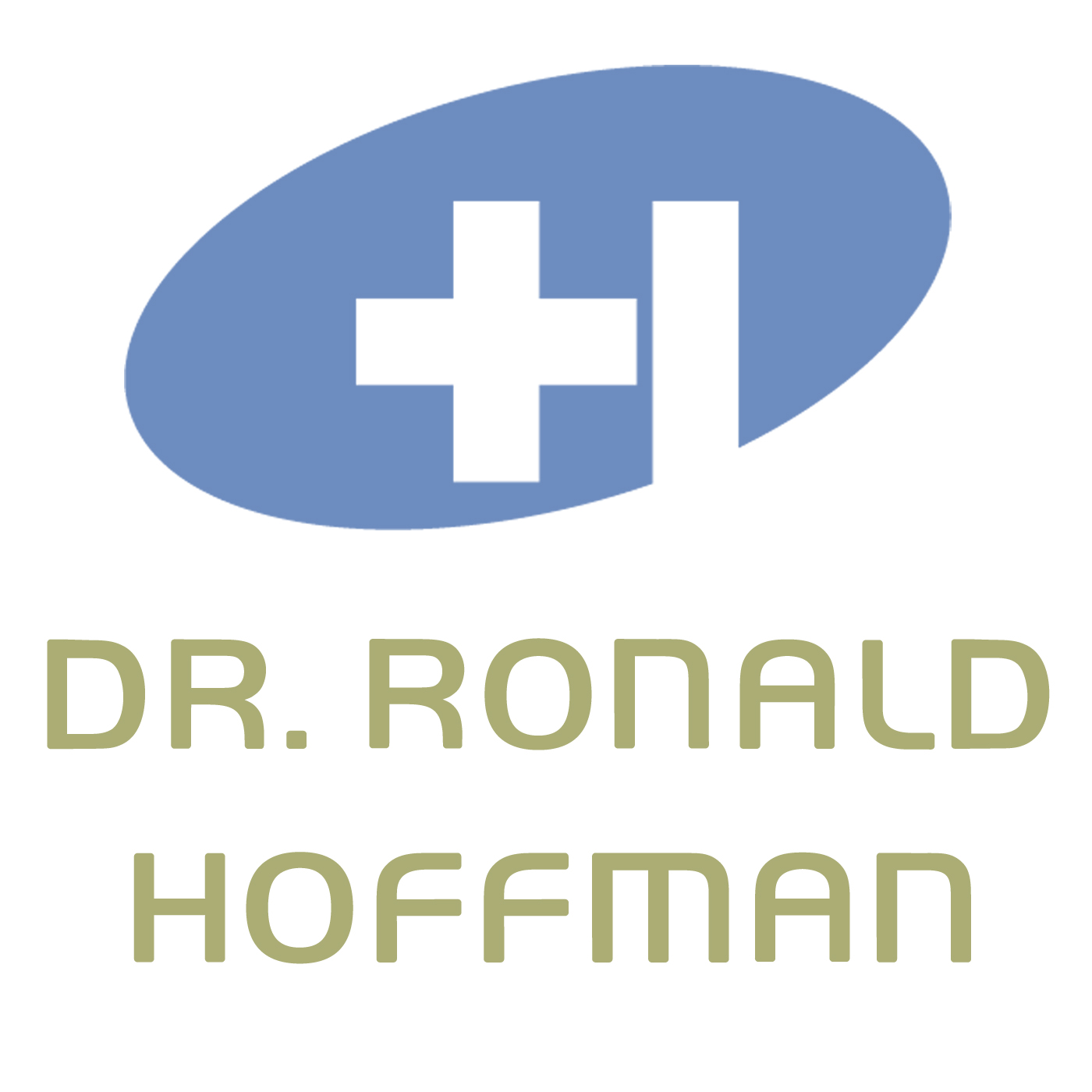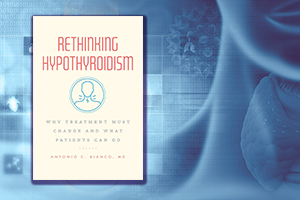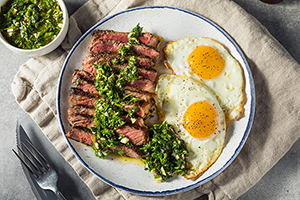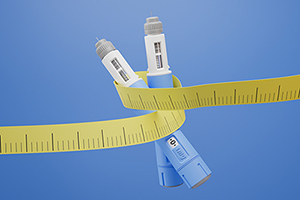| Podcast | |
|---|
 |
Q&A with Leyla, Part 2: Prevent Ongoing Hearing Loss
May 27, 2020
My husband's toes hurt periodically which makes it difficult to do some yoga positions. What are your thoughts?; What can I take to prevent ongoing hearing loss?; What do you think of using 600 mg ipriflavone as part of an osteoporosis protocol?; What do you recommend for spinal degenerative disc disease with spinal arthritis?; Doesn't taking a lot of zinc adversely impact copper absorption? How much copper should I be taking? Click HERE for part 1.
|
Share:
 |
|
 |
Leyla Weighs In: Sleep Deprivation and Alzheimer’s Disease
May 8, 2020
Nutritionist Leyla Muedin on the connection between sleep deprivation and occurrences of Alzheimer's Disease.
|
Share:
 |
|
 |
Exercise in the time of Coronavirus, Part 1
April 28, 2020
Triathlete Sue Reynolds describes her personal transformation from 335-pound couch potato to 135-pound elite competitor. Her new book, "The Athlete Inside: The Transforming Power of Hope, Tenacity, and Faith" chronicles her journey. Locked down with the rest of America, she describes her exercise workarounds. Competition has taught her lessons of resilience which have helped her cope with the current pandemic. Additionally, we discuss the advantages of weight optimization and cardiopulmonary fitness for seniors considered at higher risk for COVID-19 severity (age and metabolic derangements like diabetes and hypertension are considered “co-morbidities”)—Reynolds is 66. When not training and competing, she’s a motivational speaker. Click HERE for part 2.
|
Share:
 |
|
 |
Achieving Normal, Healthy Blood Pressure, Part 1
April 23, 2020
Dr. Matthew Budoff, Professor of Preventive Cardiology at UCLA, shares the results of a study evaluating the effects of a nitric oxide supplement (Berkeley Life) on hypertensive patients. After 12 weeks, use of the tablets reduced systolic blood pressure by an average of 12.5 points; diastolic blood pressure declined by 4.7 points. Can patients safely use nitric oxide supplements alongside their blood pressure medications? How many beets or how much arugula would you have to eat to replicate the effects of the concentrated ingredients in Berkeley Life supplements? Are there any side effects? Do nitric oxide levels decline with aging? In chronic disease states? Could there be additional benefits of nitric oxide supplementation for athletic performance? For alleviating erectile dysfunction? Do other supplements like arginine and citrulline have similar impacts on nitric oxide? Nitrites in preserved meats like bacon—why are they bad when dietary nitrates are good? What does the nitric oxide saliva test indicate? The link between nitric oxide and inflammation? Click HERE for part 2.
|
Share:
 |
|
 |
Q&A with Leyla, Part 2: COVID-19 Comprehensive Coverage
April 9, 2020
Can I reuse disposable gloves by keeping them in a bag for a week in my hot car? I live in Florida; I take hydroxychloroquine for arthritis. Will I be able to get my medication during the pandemic?; I would like to purchase a UV light to kill germs in my home. Do you have a recommendation?; Do you have any opinion about taking quinine pills in low doses prophylactically against COVID-19? What do you think of theaflavin for inhibiting coronavirus? Click HERE for part 1.
|
Share:
 |
|
 |
Leyla Weighs In: Nitric Oxide for Better Cardiovascular Health
March 13, 2020
Pharmacist and certified clinical nutritionist Beth Shirley, Executive Director of the Berkeley Life Scientific Advisory Board, details the benefits of nitric oxide supplementation. Nitric oxide is a vital signaling molecule essential in cardiovascular health. It supports blood pressure, immunity, sexual health, physical performance, cognitive function, blood sugar levels and more. Unfortunately, as we age our levels start to diminish naturally. Learn how to find out if you have low nitric oxide levels, and how to restore them.
|
Share:
 |
|
 |
Q&A with Leyla, Part 1: Coronavirus, Seniors and Those with Asthma
March 11, 2020
Update on Coronavirus; What would you specifically recommend for seniors and those with asthma with regard to Coronavirus? Click HERE for part 2.
|
Share:
 |
|
 |
Intelligent Medicine Radio Show for February 29, Part 1
March 2, 2020
Coronavirus threatens international pandemic: The good, the bad and the uncertain; Is it man-made? Should you worry? Who’s at risk? Will it abate? Computer-modeling of simple handwashing shows it could stem the tide of infections; Protocol for removing plaque from the carotid arteries; Healthy lifestyle adds disease-free years to men and women. Click HERE for part 2. Click HERE for articles and resources relating to this podcast episode.
|
Share:
 |
|
 |
Intelligent Medicine Radio Show for February 29, Part 2
Leading presidential candidates are all 70 plus—are they fit for Presidency? What critical information is missing from Bernie Sanders‘ health disclosure? Caller with polyps asks for advice on preventing colon cancer; Is too much B12 bad for you? Protocol for reversing Barrett’s esophagus; Keto diet vs. polycystic ovarian syndrome (PCOS); Lavender products might induce premature breast development in young girls and boys; Work stress prompts back pain; Mom’s Vitamin D deficiency hikes kids’ risk for ADHD; Mushroom compound protects against pregnancy hypertension. Click HERE for part 1. Click HERE for articles and resources relating to this podcast episode.
|
Share:
 |
|
 |
ENCORE: The Effects of Diet on Lifespan, Part 1
February 27, 2020
"The Longevity Diet," by Dr. Valter Longo, Director of the Longevity Institute at USC. The focus of his lifetime research has been to examine the effects of diet on lifespan. Drawing from molecular biology, the study of centenarians worldwide, and experimental research on animals and humans, he concludes that our modern diet and constant consumption have thwarted the body’s innate ability to regenerate itself at the cellular and organ levels. Caloric deprivation is part of our evolutionary heritage; our bodies are programmed to “reboot” in response to periods of nutritional insufficiency. But long-term caloric restriction (CR) has proven a mixed bag; it leaves some individuals frail and immuno-suppressed. As a healthier, more practical and more palatable alternative, he proposes a fasting mimicking diet (FMD), which restricts nutrient intake just enough for short intervals to switch on the body’s repair and rejuvenation capabilities. The FMD has demonstrated efficacy for weight loss, diabetes, cardiovascular disease, cancer, MS and Alzheimer’s; it may have broader applications to inflammatory and auto-immune disorders that are associated with aging. How often should the FMD be implemented? How does the Prolon program of FMD foods harness the benefits of periodic fasting without the risks associated with traditional fasts? What’s the ideal anti-aging diet for otherwise healthy adults? How can the FMD complement the benefits of standard cancer treatments? Why should protein-restriction be less rigorously applied to older individuals? Can time-restricted feeding (TRF) capture some of the benefits of fasting? Can TRF be taken too far? Click HERE for part 2.
|
Share:
 |
|
|





























